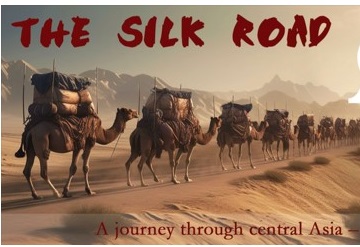
Review:
Unravelling the Silk Road, Tuesday March 11th 2025
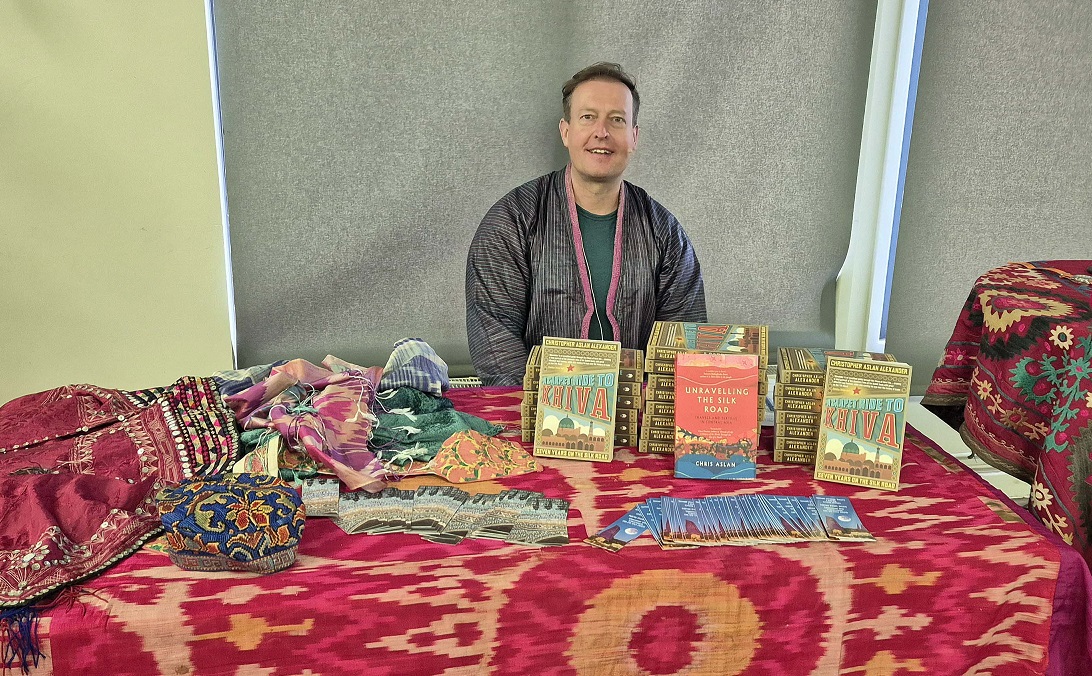
On Tuesday March 11th members were treated to three lively lectures by Central Asian specialist, Chris Aslan, in the first of three TASH Special Interest Days for 2025.
The speaker has lived and travelled extensively in Central Asia and has also written books about the area; his own biography would be worthy of a separate book!
With an engaging mixture of history, geography and personal anecdotes, a record audience of 100 members were captivated and drawn into this lesser know part of the world.
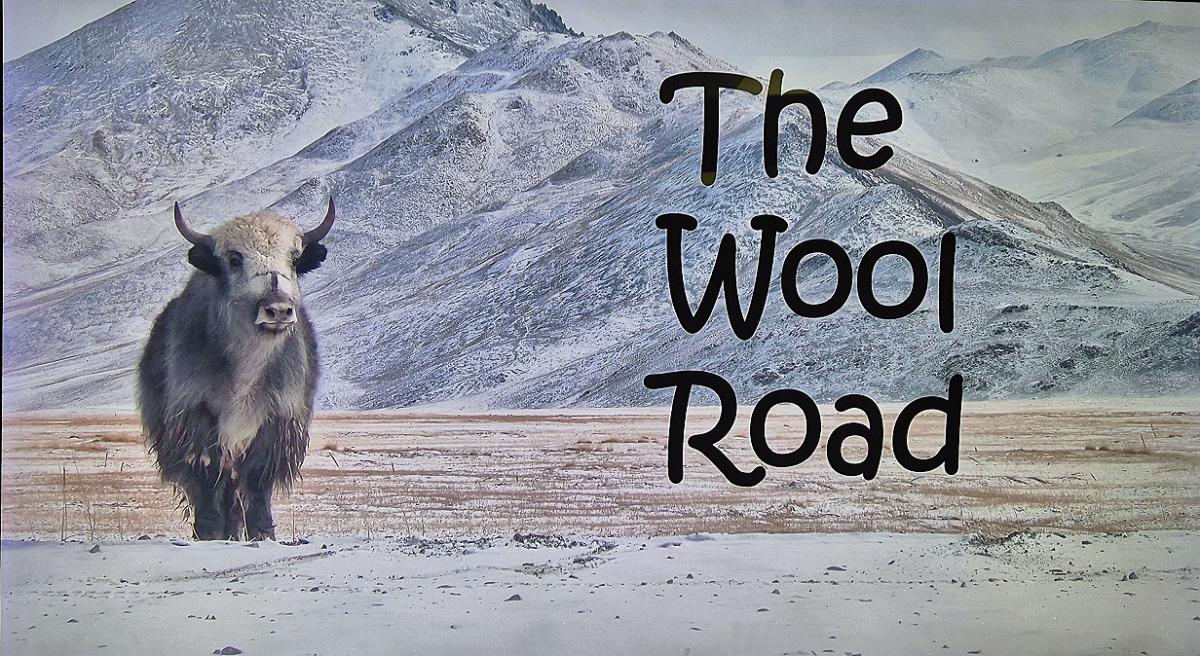
Of the three textile roads which tangled their way through Central Asia, the Wool Road (subject of the first lecture) was the oldest and enabled nomads to traverse the inhospitable Steppes, building houses of felted wool, beautifully decorated and colourful, warding off the ‘Evil Eye’ and having the practical benefits of being warm, fire resistant and keeping scorpions at bay!
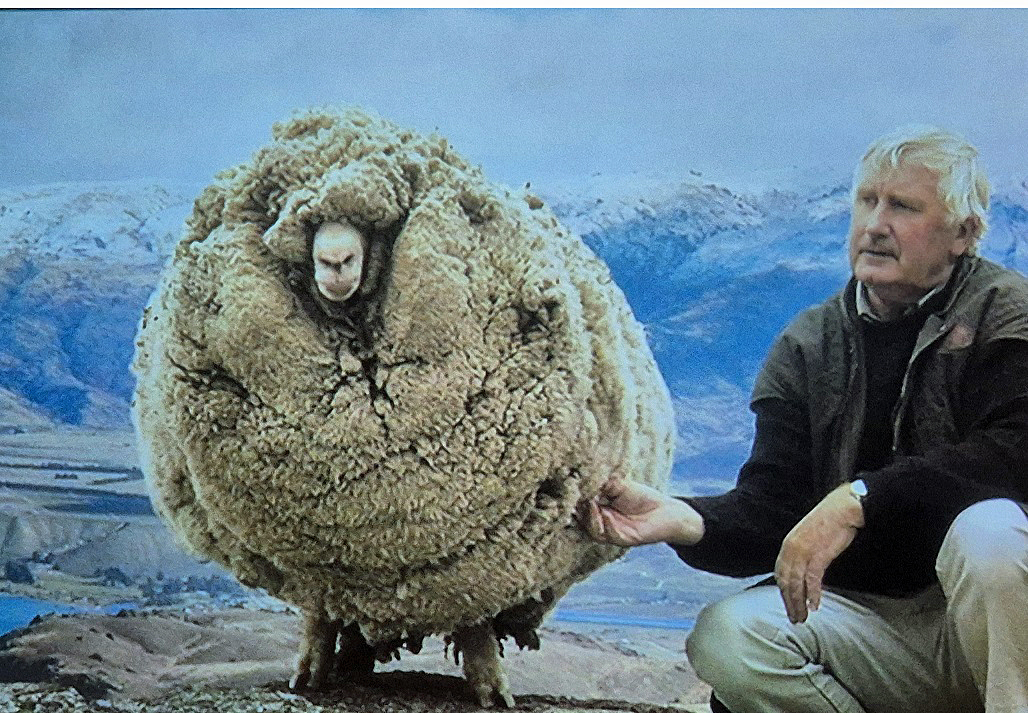
Silk was the currency for trade between the West and China. The Chinese had for millennia kept the knowledge of silk production to themselves as China had developed separately from the Greco-Roman world, cut off by the marauding nomadic peoples of Central Asia. Trading horses for silk gave China the cavalry it needed to combat the nomads and the trade blockage was broken.
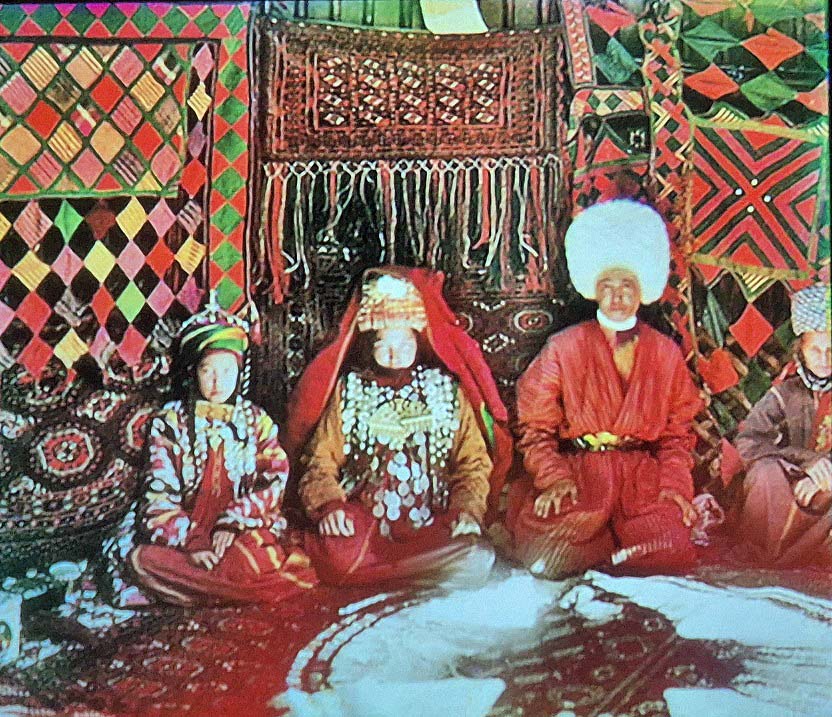
In relatively little time, silk began to stratify society, as it has continued to do. The softest silks and muslins became highly prized by the Romans, who paraded in the ‘glass togas’ that we witness in treasured sculptures today. But the Silk Road became the conduit ( and in both directions) for many other things, familiar today, but originating in Central Asia and China -paper, rhubarb, apples, hollyhocks, tulips and many garden plants. More darkly there was gunpowder and bubonic plague, carried by marmots, who were resistant to plague, though fleas from their carcasses carried it to the West in bales of cloth.
Few, other than missionaries, travelled the length of the Silk Road. Most of the traders were Zoroastrian Sogdians , whose capital was Samarkand, the centre for paper making for the Islamic world. Today it’s in Uzbekistan and still a centre for sericulture, its roads lined with mulberry trees, and increasingly on the mainstream tourist trail.
Chris himself contributed to the revival of traditional carpet designs, now prized by tourists, working for a Swedish NGO and establishing a silk carpet workshop in Khiva, Uzbekistan. His in depth knowledge of textile production techniques, the turbulent history of the area and personal anecdotes kept his audience enthralled. The brilliant colours of the textiles, some of which he had brought along, were in stark contrast to the vast, bleak but haunting landscapes in his photographs.
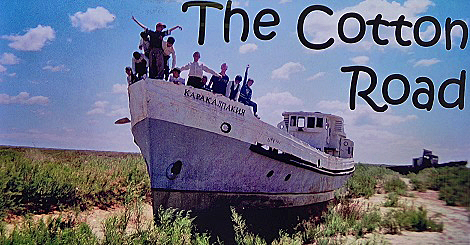
The Cotton Road, subject of the afternoon lecture, was a less happy story, cotton being inextricably linked with environmental catastrophe and colonial exploitation.
Originating as a tropical tree, 95% of today’s cotton is a hybrid known as American Upland. It needs 10 times more water than the same acreage of wheat, which has led to the Aral Sea becoming the Aral Desert in less than 25 years.
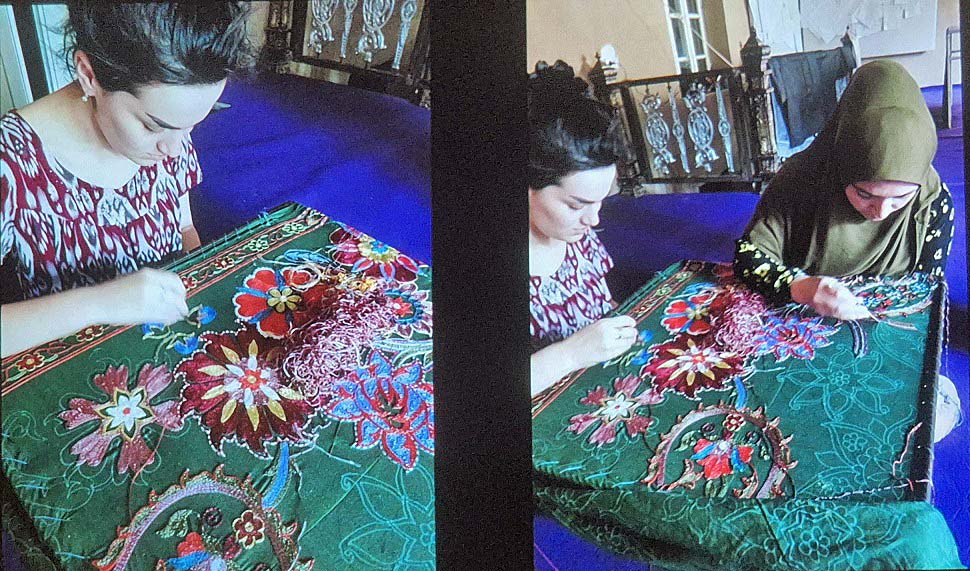
India had perfected the use of cotton and produced Dhaka Muslin, which became 16 times more valuable than silk in late 18th and early 19th century Europe, prized for its very high thread count and diaphanous look, favoured by the wealthy.
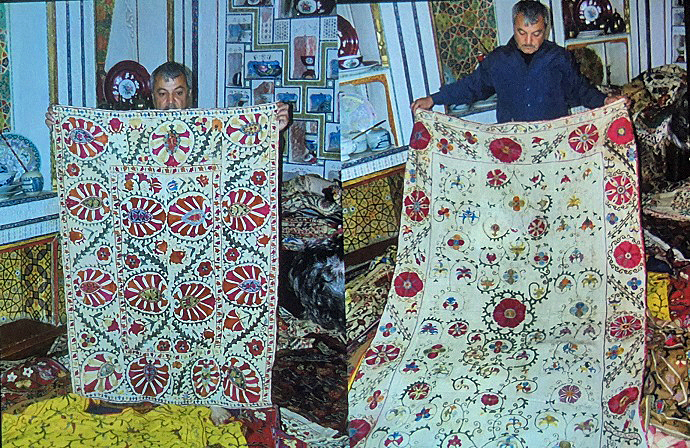
But British Rule in India caused the extinction of muslin production, replacing it with coarser, cheaper, home manufactured cotton goods, made from less expensive cotton produced in America and using slave labour.
After a rapid review of the effect that cotton has had on the political and social history of many parts of the world, Chris brought us back to the present and the current growth of tourism along the old Silk Road. This has led to a revival in textile production, silk now often mixed with cotton, but with a warning to be sure of the authenticity of our souvenirs. The day certainly left a large proportion of the audience with an addition to their bucket list.
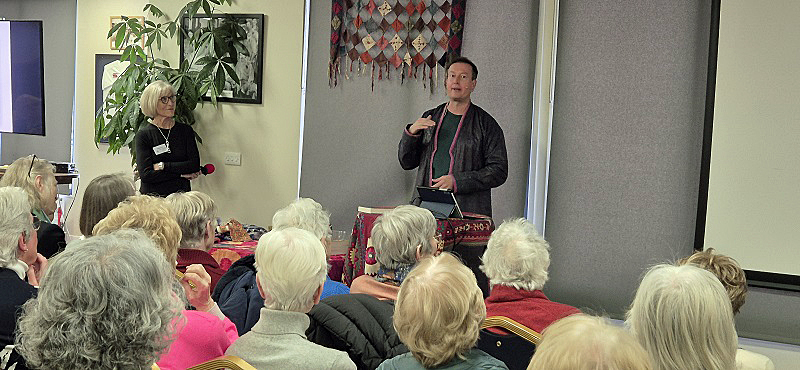
Books by Chris Aslan:
Unravelling the Silk Road -Travels and Textiles in Central Asia
A Carpet Ride to Khiva - Seven Years on the Silk Road
Diana Jones
~~~~~~~~~~~~~~~~~~~~~~~~~~~~~~~~~~~~~~~~~~~~~~~~~~~~~~~~~~~~~


Afghans travelling to the Pamir Mountains (Afghanistan), site of the ancient Silk Road, c.1800; a 19th-century colour lithography. Photo © North Wind Pictures/Bridgeman Images
 Chris Aslan was born in Turkey (hence the name Aslan) and spent his childhood there and in war-torn Beirut. After school, Chris spent two years at sea before studying Media and journalism at Leicester University. He then moved to Khiva, a desert oasis in Uzbekistan, establishing a UNESCO workshop reviving fifteenth century carpet designs and embroideries, and becoming the largest non-government employer in town. He was kicked out as part of an anti-Western purge, and took a year in Cambridge to write A Carpet Ride to Khiva. Chris then spent several years in the Pamirs mountains of Tajikistan, training yak herders to comb their yaks for their cashmere-like down. Next came a couple more years in Kyrgyzstan living in the world’s largest natural walnut forest and establishing a wood-carving workshop. Since then, Chris has studied and rowed at Oxford, and is now based in Cambridge, but with plans to move to North Cyprus. When he’s not lecturing for The Arts Society, he writes.
Chris Aslan was born in Turkey (hence the name Aslan) and spent his childhood there and in war-torn Beirut. After school, Chris spent two years at sea before studying Media and journalism at Leicester University. He then moved to Khiva, a desert oasis in Uzbekistan, establishing a UNESCO workshop reviving fifteenth century carpet designs and embroideries, and becoming the largest non-government employer in town. He was kicked out as part of an anti-Western purge, and took a year in Cambridge to write A Carpet Ride to Khiva. Chris then spent several years in the Pamirs mountains of Tajikistan, training yak herders to comb their yaks for their cashmere-like down. Next came a couple more years in Kyrgyzstan living in the world’s largest natural walnut forest and establishing a wood-carving workshop. Since then, Chris has studied and rowed at Oxford, and is now based in Cambridge, but with plans to move to North Cyprus. When he’s not lecturing for The Arts Society, he writes. 